

Trends
News Release
Event Recap: Launch Conference of the Inaugural Issue of Research in Classics and Symposium on Exchange among Civilizations and Interpretation of Classics
2023-12-25
Sourced from WeChat Official Account:Research in Classics
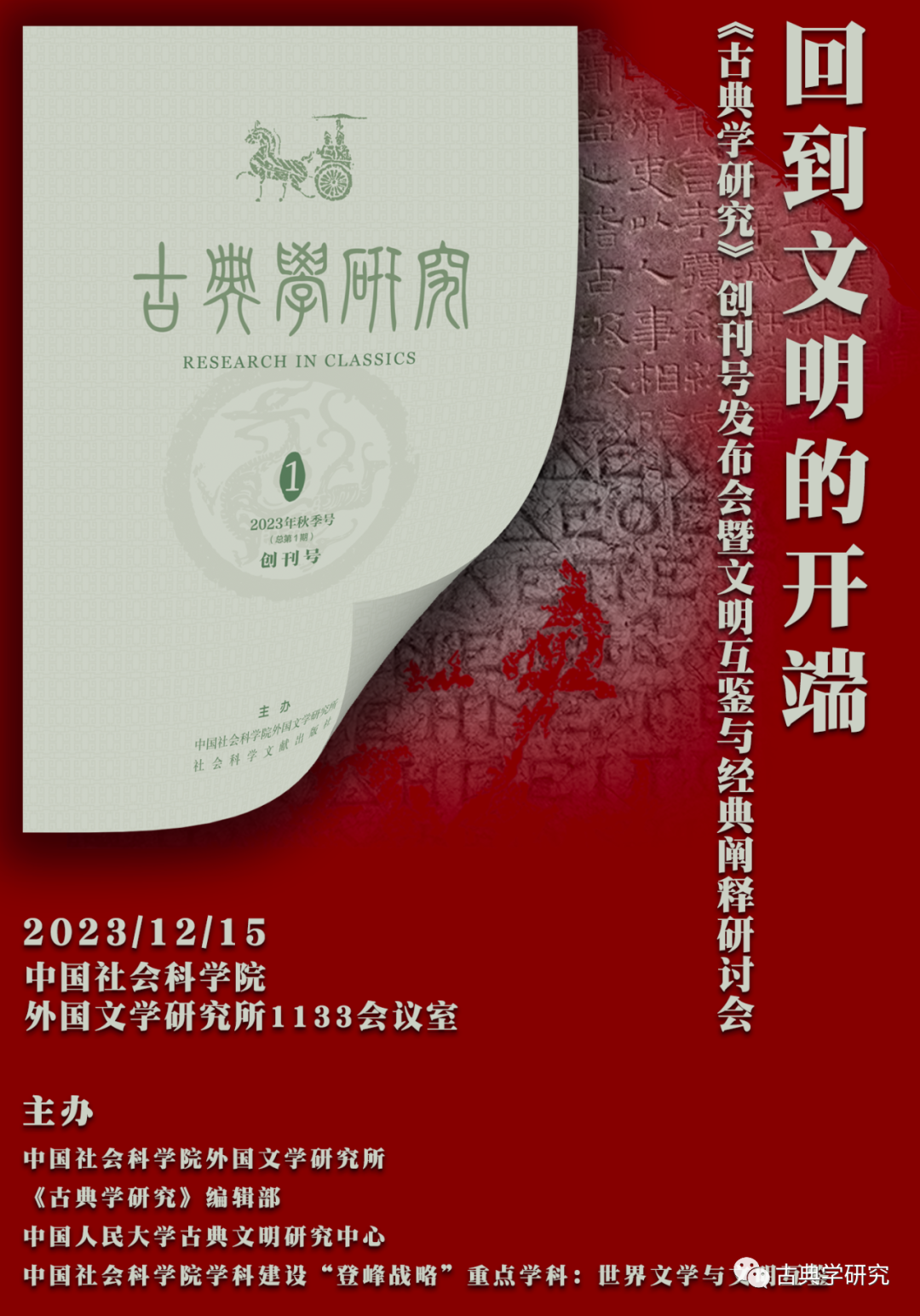
On the afternoon of December 15, 2023, following a fresh snowfall in Beijing, "Returning to the Dawn of Civilization: The Launch Conference of the Inaugural Issue of Research in Classics and the Symposium on Exchange among Civilizations and Interpretation of Classics" was held at the Institute of Foreign Literature of the Chinese Academy of Social Sciences (CASS). The event was jointly organized by the Institute of Foreign Literature of CASS, the editorial board of Research in Classics, the Journal Division of Social Sciences Academic Press (China), and the Center for Classical Civilization at the School of Liberal Arts, Renmin University of China, and co-sponsored by the Classical Studies Association of the Chinese Association of Foreign Literature. Experts and scholars from various research institutions and universities, including the CASS, the National Academy of Governance, Tsinghua University, Renmin University of China, and Peking University, gathered to celebrate the launch of the inaugural issue of Research in Classics and engaged in discussions on the development of classics and exchange of Eastern and Western civilizations.

The launch conference for the inaugural issue of Research in Classics
The launch conference for the inaugural issue of Research in Classics
The first stage was the launch conference of the inaugural issue of Research in Classics. It was presided over by He Fangying, researcher at the Institute of Foreign Literature of CASS and the executive editor of Research in Classics. Congratulatory remarks were delivered by Liu Xiaofeng, a Level-I professor at Renmin University of China (RUC) and director of the Center for Classical Civilization at the School of Liberal Arts, as well as editor-in-chief of Research in Classics, Ji Xiangde, the president of the Social Sciences Academic Press (China), and Cheng Wei, director of the Institute of Foreign Literature of CASS.
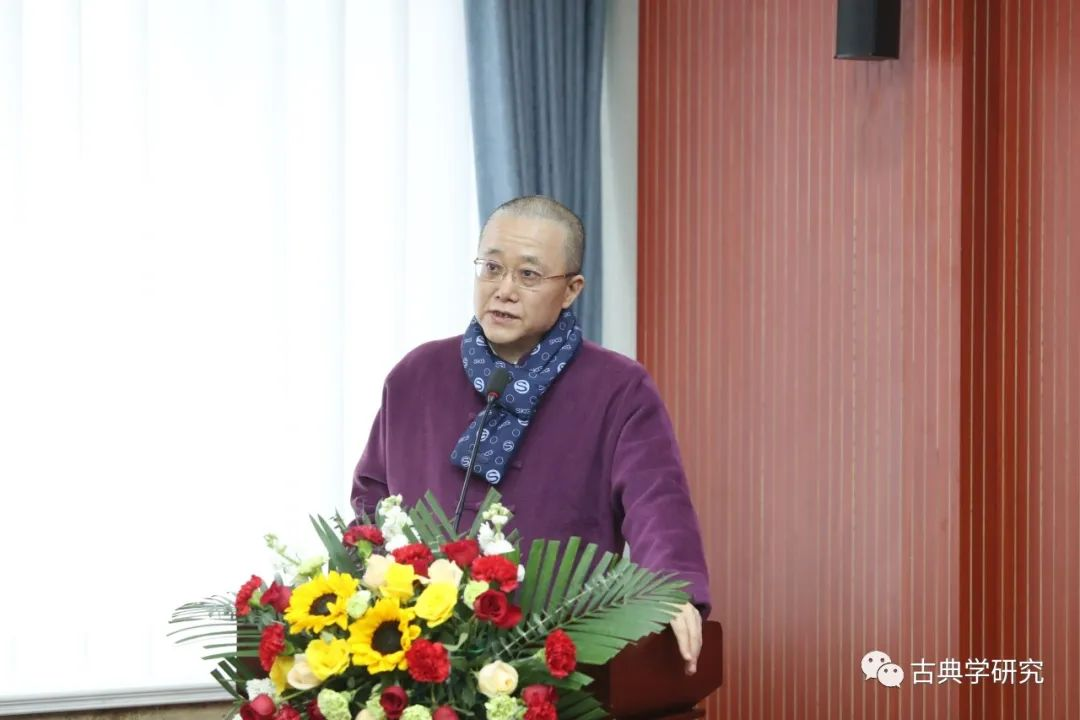
Liu Xiaofeng
Professor Liu Xiaofeng, director of the Center for Classical Civilization at the School of Liberal Arts, RUC, and editor-in-chief of Research in Classics, delivered a speech. He briefly recounted the founding journey of the journal and envisioned its future development. He expressed delightly that a new generation of classics scholars has emerged to inherit and carry forward the aspirations of veteran predecessors such as Mr. Luo Niansheng, Mr. Shui Jianfu, and Mr. Wang Huansheng from the Institute of Foreign Literature of CASS. The release of Research in Classics marks a significant and joyous event in the Chinese academic community. It will provide a superior platform for the advancement of classical civilization research in China. Although rooted in the Institute of Foreign Literature, the journal's future trajectory will not be confined to classics in the literary domain or mere imitation of Western classics. Instead, it aims to transcend the disciplinary boundaries of philosophy, history, literature, and even philology, comprehensively promote classical civilization research, and establish a uniquely Chinese classics discipline.
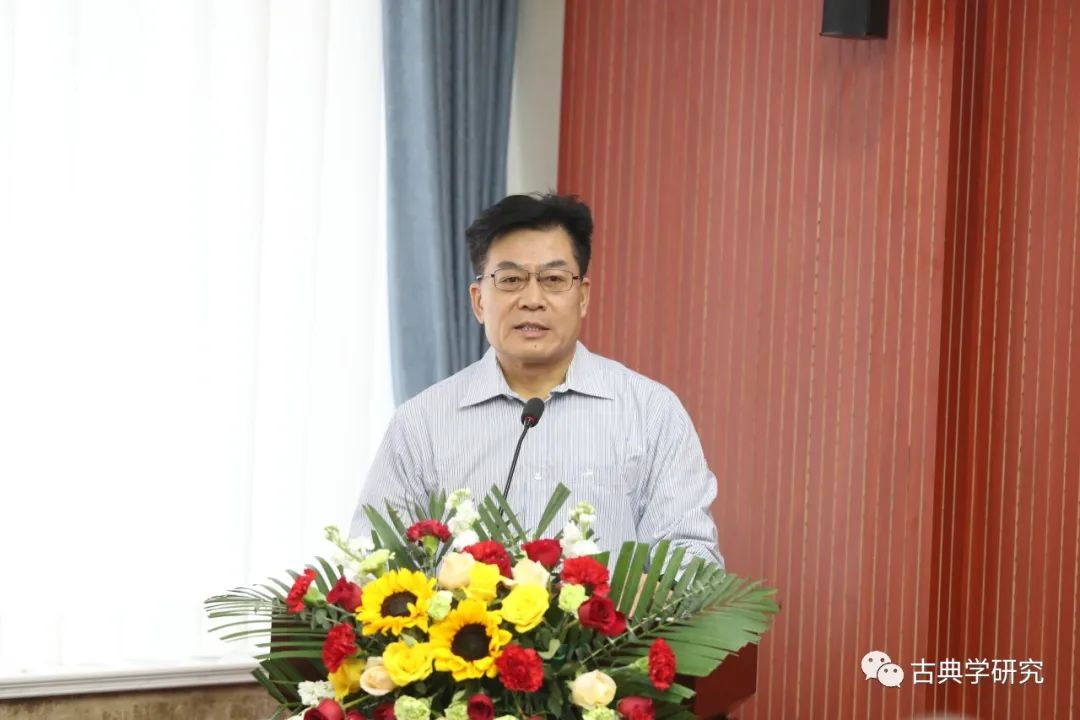
Ji Xiangde
In his address, Ji Xiangde, the president of the Social Sciences Academic Press (China), emphasized that Xi Jinping, during a symposium on cultural inheritance and development, highlighted only through a comprehensive and profound understanding of the history of Chinese civilization can we effectively promoting the creative transformation and innovative development of excellent traditional Chinese culture, thereby advancing the development of socialist culture with Chinese characteristics and building a modern civilization for the Chinese nation. Against this backdrop, the establishment of the Research in Classics journal holds significant importance and bears a substantial mission. He noted that while founding a journal is easy, managing it is challenging. The Social Sciences Academic Press will collaborate with the Institute of Foreign Literature to ensure the successful publication of Research in Classics. They will adhere to the correct political direction and academic orientation, strengthen communication with editorial departments, and align authors with societal needs to enhance the quality of the journal. Additionally, they will leverage their platform to effectively promote and disseminate the journal, facilitating its reach beyond borders.

Cheng Wei
In his address, director Cheng Wei reflected on the developmental journey of the classics discipline at the Institute of Foreign Literature. He introduced the initiatives undertaken by the institute to advance classics, including the establishment of a journal, the formation of a research group, a society, a research center, and the creation of a database. These "five initiatives" are set to become the medium-to-long-term goals for the future development of classics. As of now, the first three have already been realized. He pointed out that the current discipline of foreign literature is dominated by three forms of centrism, including the Western-centric worldview, the emphasis on English-centric research fields, and the text-centric research methodology. This has led to a trend of confinement of research in foreign literature to a single language, a single country, and a single method, resulting in the decline of classics. Returning to the origins of civilization means bridging the ancient and the modern, modernizing the ancient, and turning the modern classical. It signifies acknowledging Chinese civilization as one of the great beginnings and involves penetrating the layers of discourse to return to original concepts, much like archaeologists unearthing elements that are far richer and partially lost than they appear today to weave the ancient and the modern into a continuous and living whole. Finally, he expressed his warm congratulations on the inaugural issue of Research in Classics and looked forward to Chinese scholars in classics making greatercontributions to world civilization.
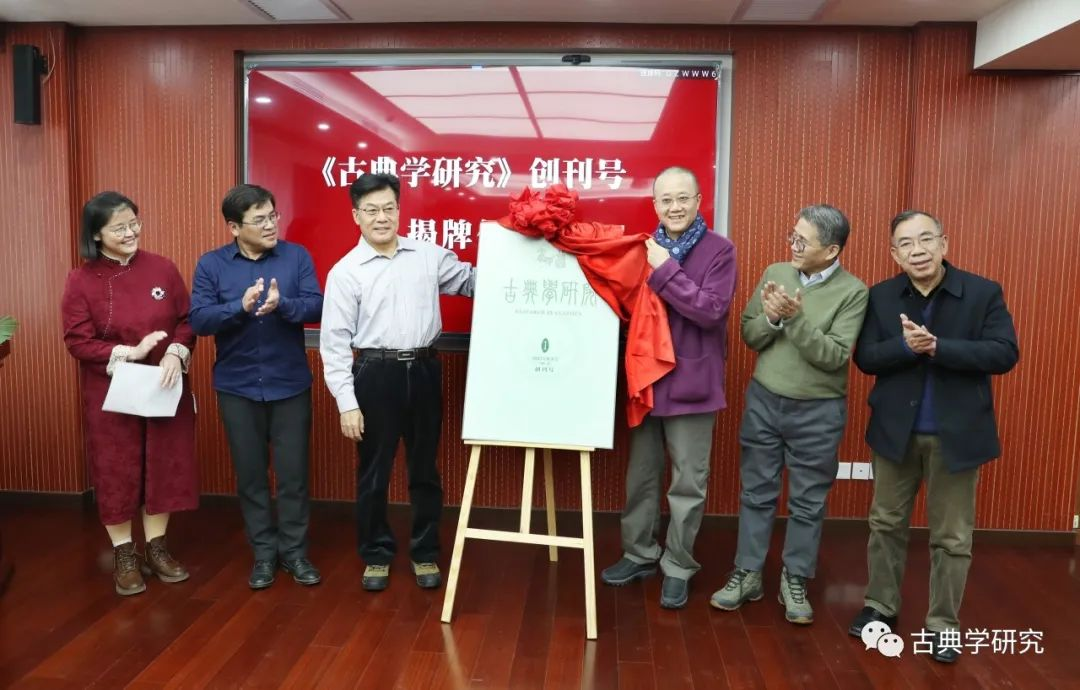
The unveiling ceremony of the journal in the launch conference
Subsequently, the unveiling ceremony was held. Professor Liu Xiaofeng, director Cheng Wei, president Ji Xiangde, Mr. Gan Yang, the chair professor at Xinya College, Tsinghua University, and Professor Wan Junren, director of the Academic Committee of the School of Humanities, Tsinghua University, collectively unveiled the journal Research in Classics. Amid enthusiastic applause, the inaugural issue of Research in Classics was presented to the audience, enveloped in an atmosphere of solemnity and celebration.
The symposium
The second stage of the event comprised a symposium on Research in Classics and Disciplinary Development of Classics and a seminar on Exchange among Civilizations and Interpretation of Classics.
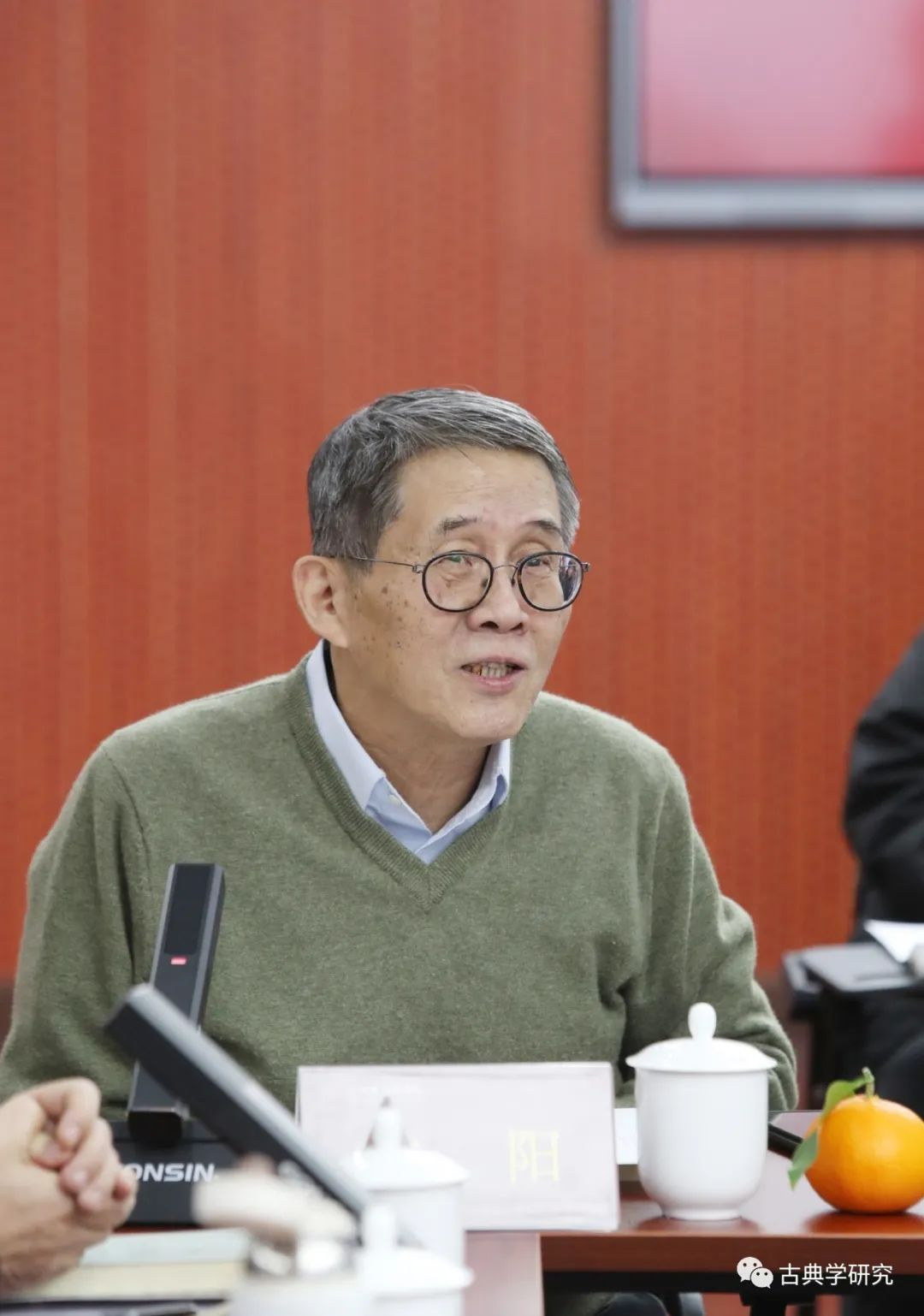
Gan Yang
The symposium on Research in Classics and Disciplinary Development of Classics was presided over by professor Gan Yang, deputy director of the Teaching Committee and Director of the General Education Committee at Tsinghua University and chair professor at Xinya College, Tsinghua University. In his address, he articulated his aspirations for classics in China and highlighted the release of the journal Research in Classics as a landmark event of significant academic importance in the domestic classics community.
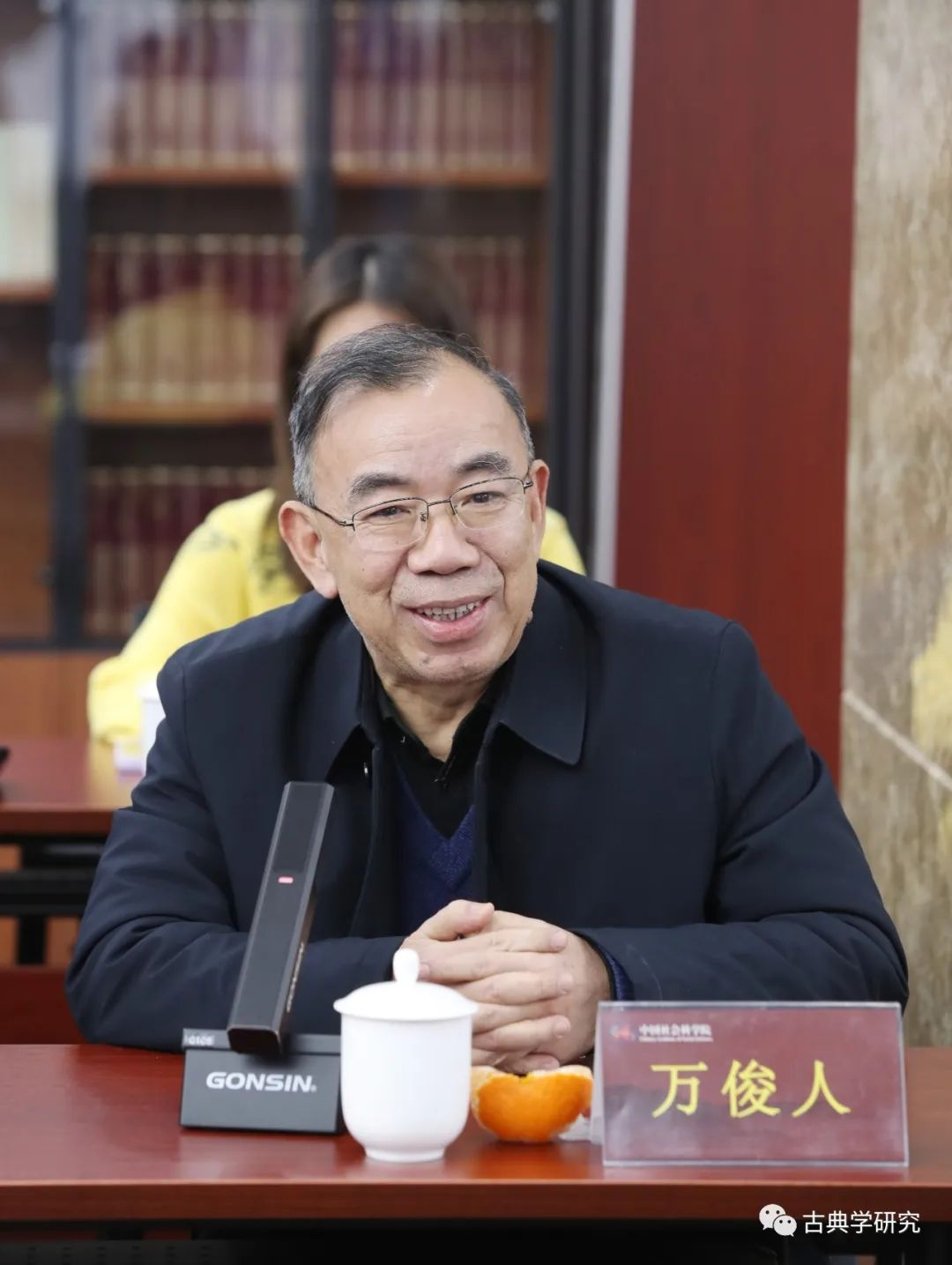
Wan Junren
Wan Junren, director of the Academic Committee of the School of Humanities, Tsinghua University and professor in the Department of Philosophy, reflected upon his personal experiences to review the recent developments in the humanities disciplines in Chinese universities. He summarized the profound significance of advancing classics and the challenges currently faced in this field. He asserted that classics form the bedrock of the humanities, offering invaluable insights into the early experiences and ideas of human civilization and culture, which hold great relevance for us today.
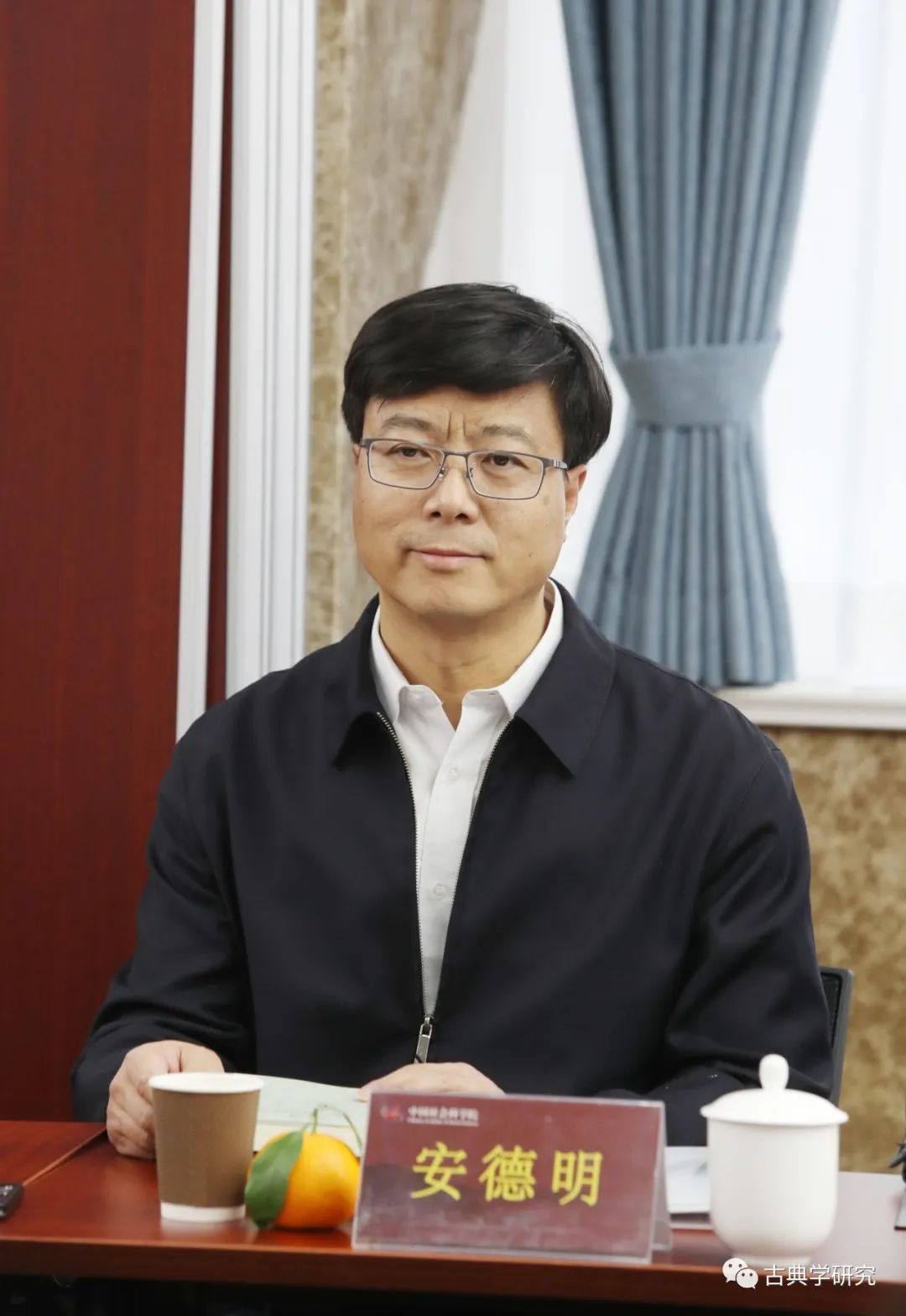
An Deming
"Classics may appear distant, yet they are intricately linked to our contemporary reality. The classical spirit, thoughts, and mindset permeate every facet of our present lives," stated An Deming, deputy director of the Institute of Literature of CASS. He noted that while classics are confined to specific regions and periods, the interdisciplinary and integrative nature is prominent, encompassing modern academic fields such as literature, art, archaeology, and history. It is hoped that the journal Research in Classics will return to its original intent of classical research to explore ancient Western civilizations from the perspective of Chinese scholars in the framework of exchange among civilizations.

Ding Guoqi
Ding Guoqi, the deputy director of the Institute of Ethnic Literature of CASS, posited that classics serve as the foundation, encompassing humanity's fundamental notions about nature, life, and society. In the congratulatory letter to World Conference on China Studies -- Shanghai Forum, President Xi Jinping emphasized, "Only by tracing the origins of history can we understand the reality of the world, and only by following the cultural foundation can we identify present-day China. It is through the mutual learning of civilizations that common progress can be achieved." The ultimate goal of promoting the excellent traditional Chinese culture is to return to the classics and cultural traditions, and to meticulously explore and seek the "roots" and "soul" where the Chinese people dwell. By revisiting the classics and unearthing the excellent traditional Chinese culture, we aim to construct an independent Chinese knowledge system that engages in equal dialogue and mutual learning with Western civilization.
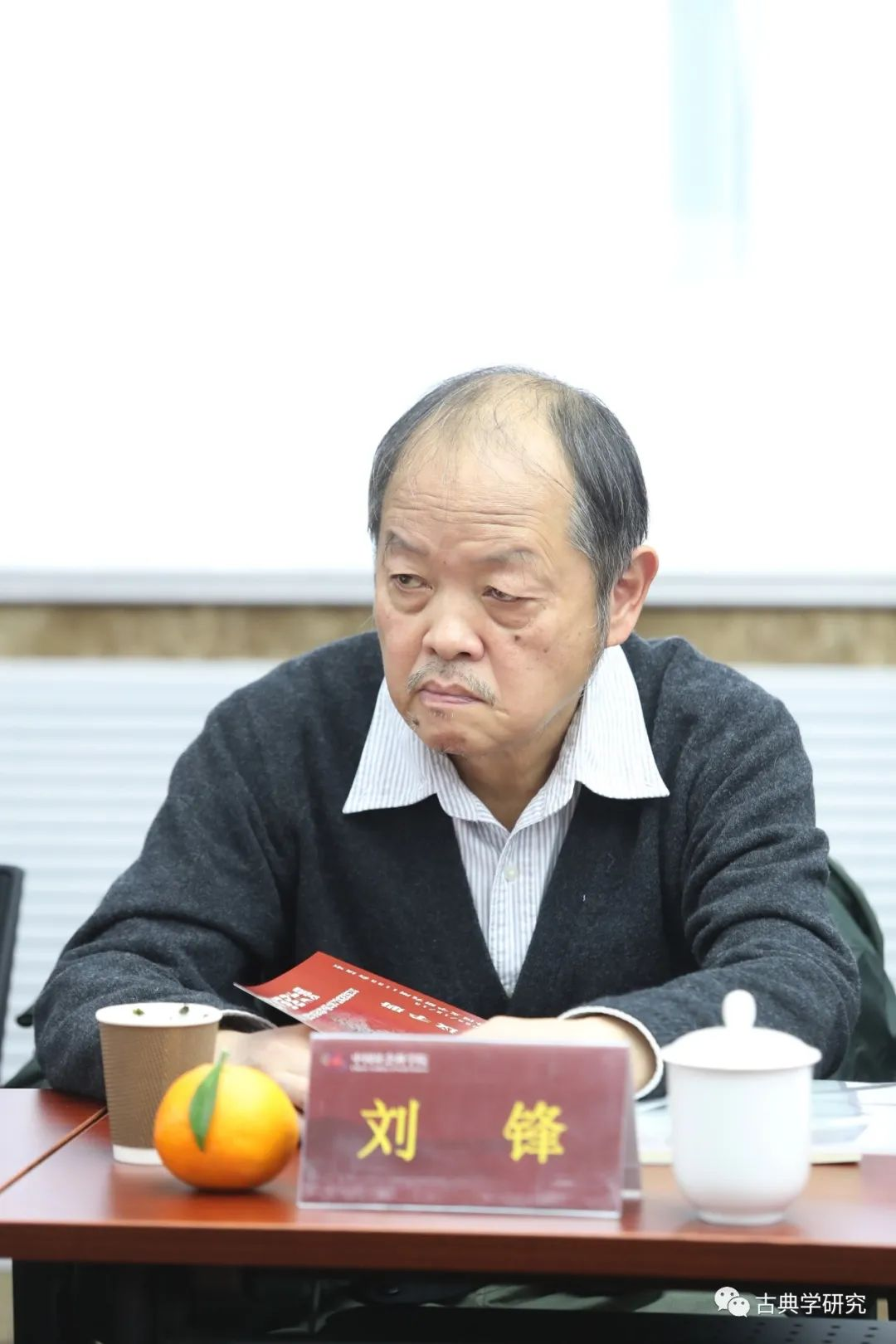
Liu Feng
Liu Feng, professor in the English Department, the School of Foreign Languages, Peking University, and editor-in-chief of Foreign Literatures, proposed that Research in Classics should encompass a broader range of research topics. He posited that the profound influence of ancient Greek civilization on subsequent eras warrants an expansion of classics to include the reception of classical antiquity across all periods. Furthermore, he suggested incorporating writers, thinkers, and philosophers who have traditionally been excluded from the conventional scope of classics.
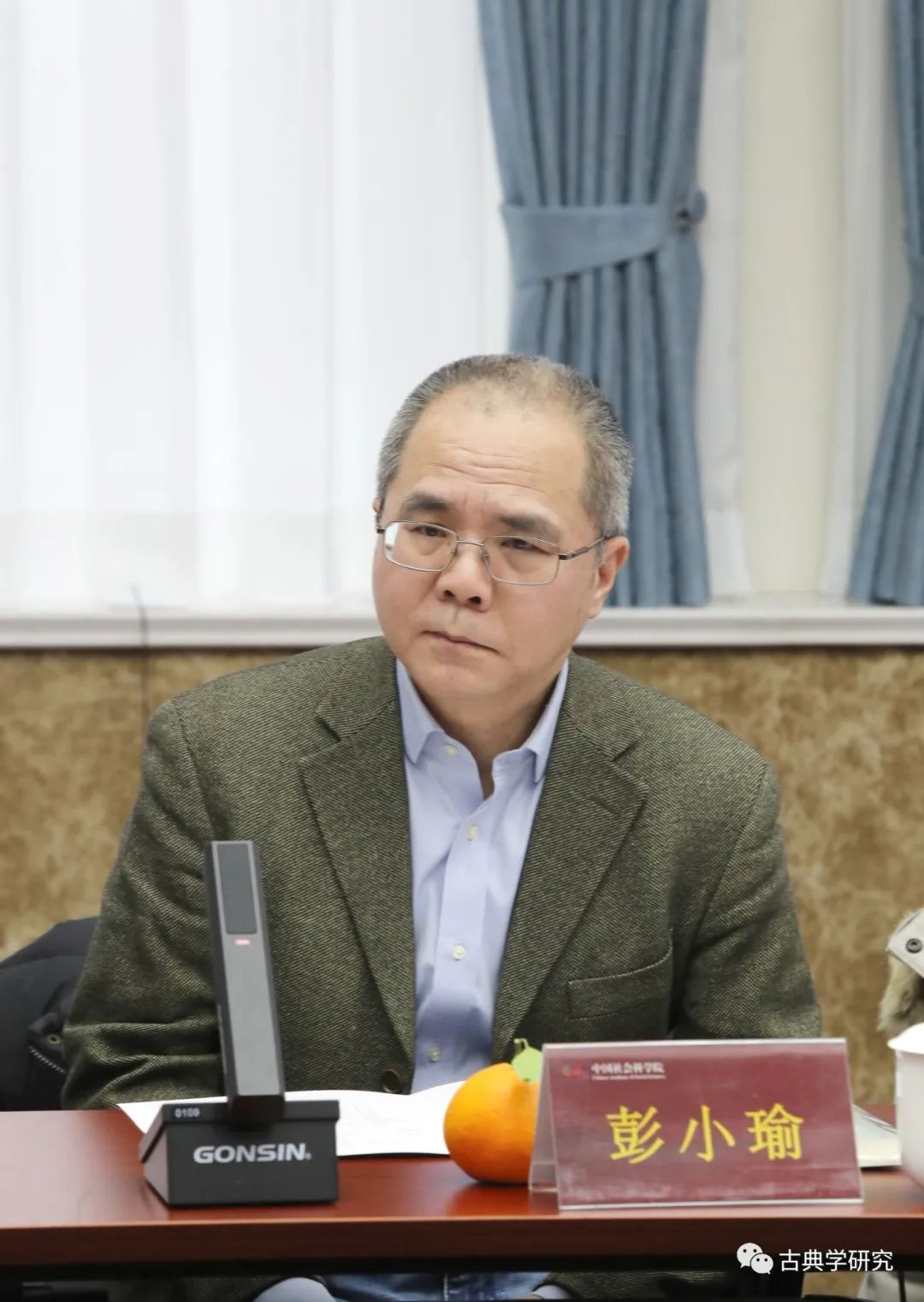
Peng Xiaoyu
Peng Xiaoyu, director of the Center for Classical and Medieval Studies at Peking University, and professor in the Department of History, reflected on the current state of classics education in China. He emphasized that the discipline should draw from its own teaching practices while judiciously incorporating Western educational experiences in classics. In particular, he advocated for a significant increase in the resources and time dedicated to the teaching of classical languages, with the aim of nurturing more promising talents for the development of classics in China.
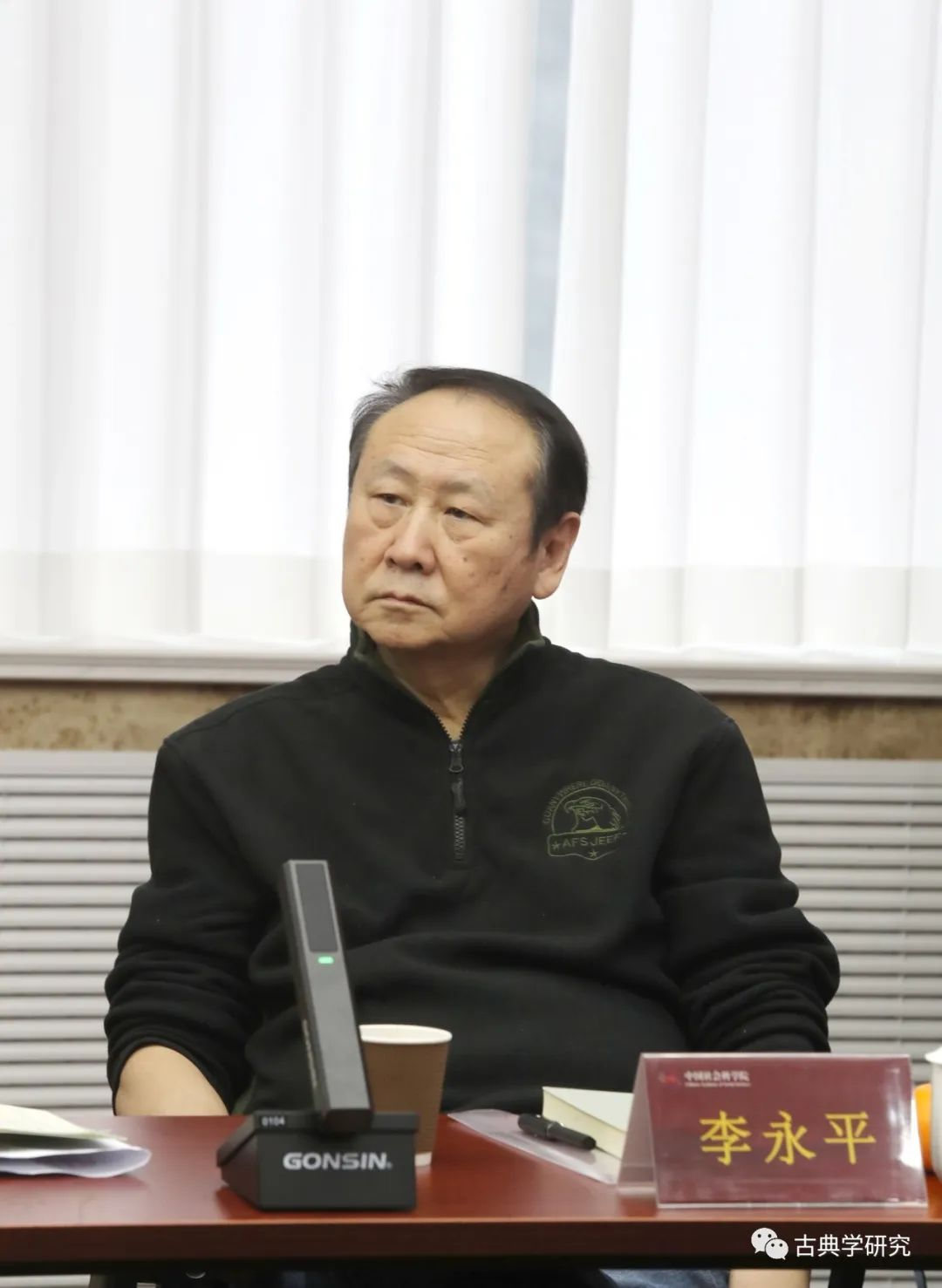
Li Yongping
Li Yongping, researcher at the Institute of Foreign Literature of CASS, posited that the publishing of Research in Classics will lay a more robust foundation for the research of humanities disciplines in China. Taking the distinction between "humanitarianism" and "humanism" as an example, he highlighted that the differences in research contexts between the West and China actually mirror the disparities between ancient and modern times. He advocated that scholars of foreign literature should intensify their study of classics and classical languages while steadfastly maintaining their faith in Chinese culture.

Gu Yu
At the symposium on "Exchange among Civilizations and Interpretation of Classics," professor Gu Yu from the Department of German at the School of Foreign Languages, Peking University, shared his connection with the journal Research in Classics and affirmed its quality. He highlighted that the study of classical languages is a crucial aspect of classics. Taking Baroque drama research as an example, he noted that obstacles in understanding classical languages have hindered the Chinese academic community's exploration of the deeper issues behind Baroque drama, such as political philosophy and political theology. The journal Research in Classics provides an excellent platform for more in-depth research in these areas.
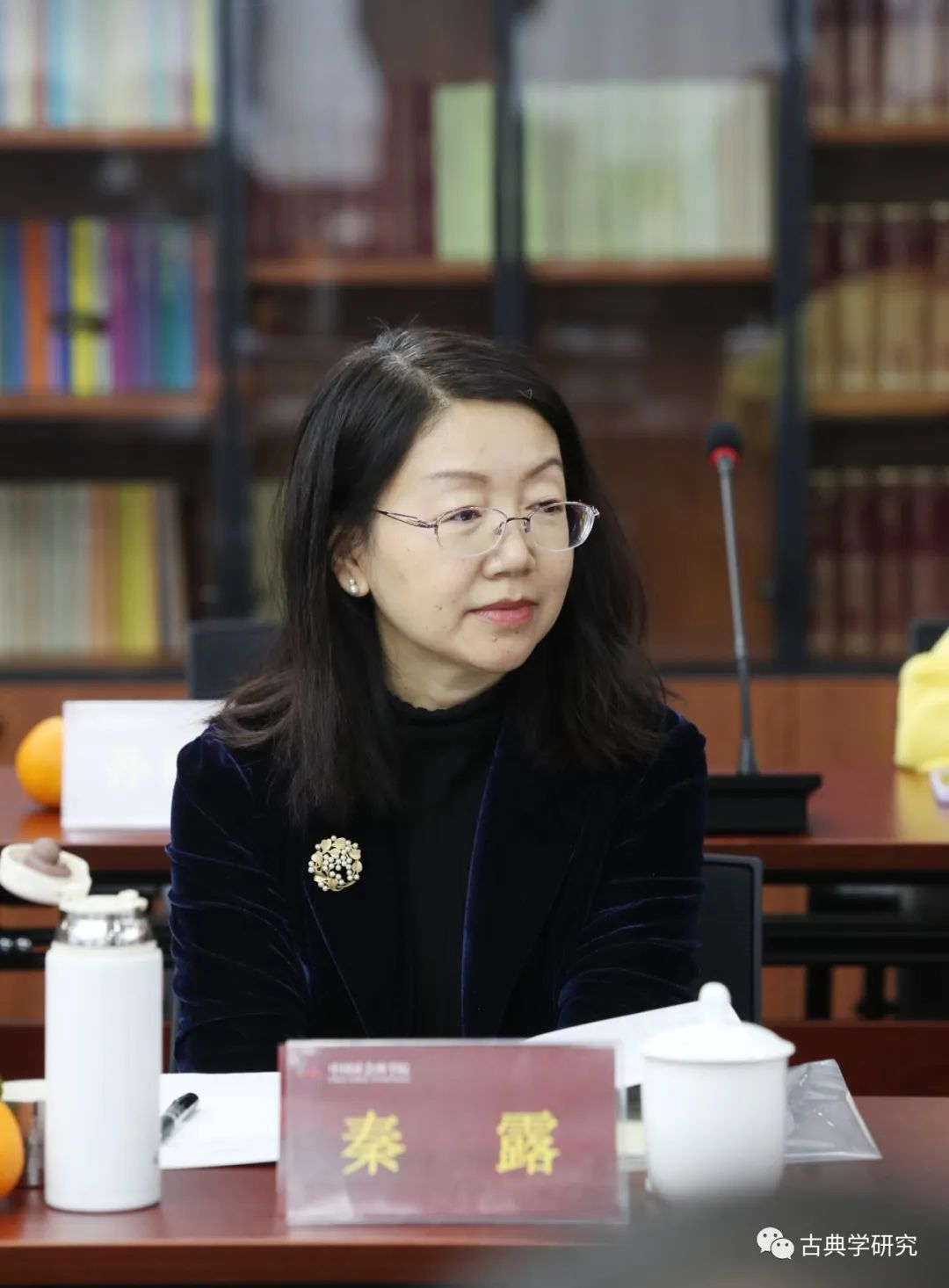
Qin Lu
Professor Qin Lu, deputy director of the Department of Literature and History at the National Academy of Governance, extended her heartfelt congratulations on the inaugural issue of Research in Classics. She articulated, from the perspectives of the dialectics of struggle and mutual learning, as well as universality and particularity, that in the process of exchange among civilizations, the Chinese academic community should fully leverage domestic scholarly achievements to understand both themselves and others, thereby securing their own discourse power. Correspondingly, we should comprehend the overall journey of various world civilizations from isolation to mutual interaction.

Jiang Mei
Focusing on the discipline setting of historical studies, professor Jiang Mei of the School of History at Capital Normal University analyzed the relationship between European history and world history and the current state of the discipline. She highlighted the importance of historical research in shaping cultural identity, asserting that the Chinese nation must discover our own subjectivity in it to restore genuine world history studies. Consequently, the consciousness of classics holds significant importance for historical research.
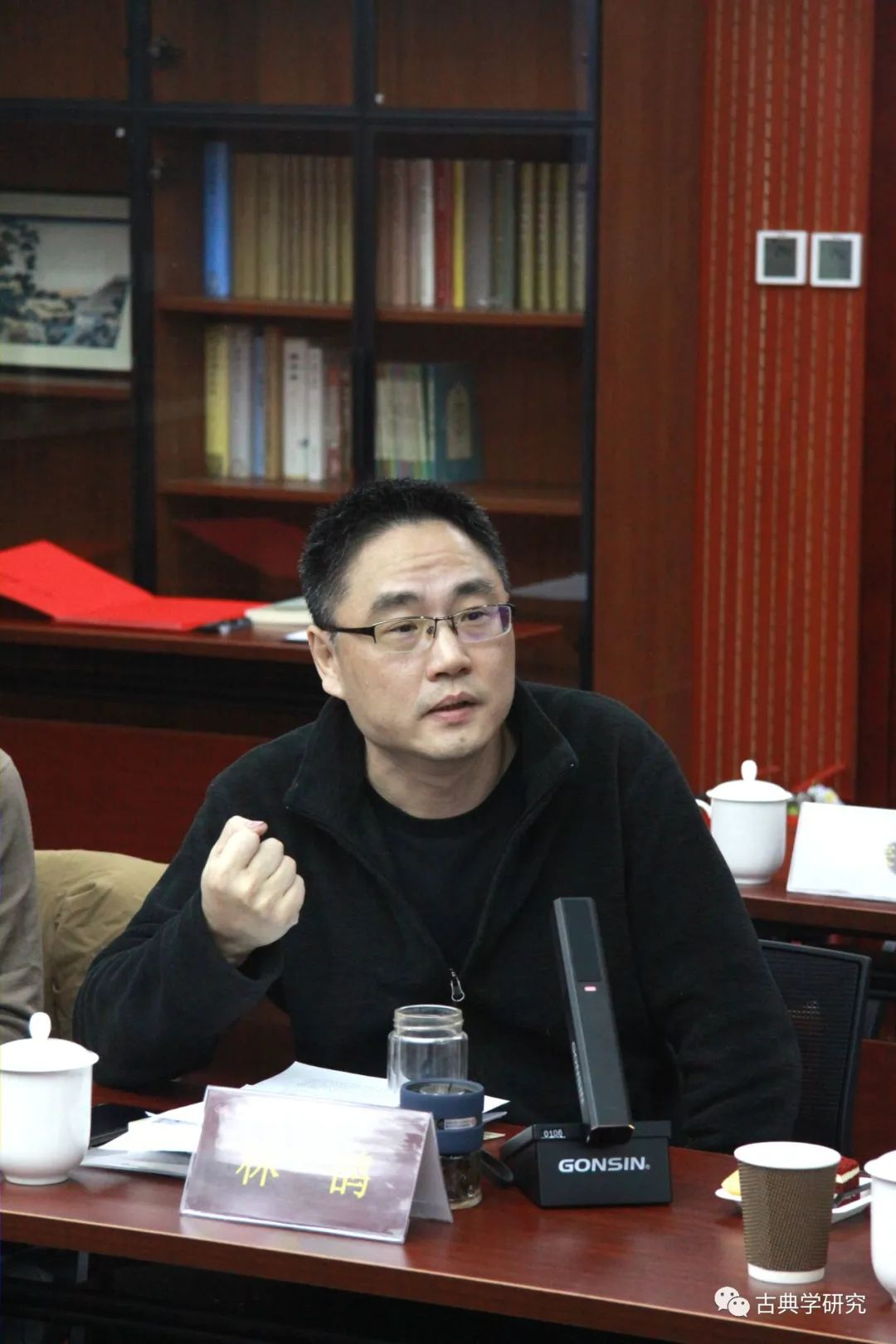
Lin Hu
Lin Hu, researcher at the Institute of Ancient History of CASS, asserted that contemporary China must confront the formidable challenges posed by Western civilization. To truly comprehend the West in the modern times, one must first understand the rupture between modern Western society and classical Western civilization. The journal Research in Classics offers a platform for dialogue across various fields of the humanities, predicated on a consensus regarding fundamental issues, which maintains that classics represent an eternal discipline transcending both ancient and modern times.
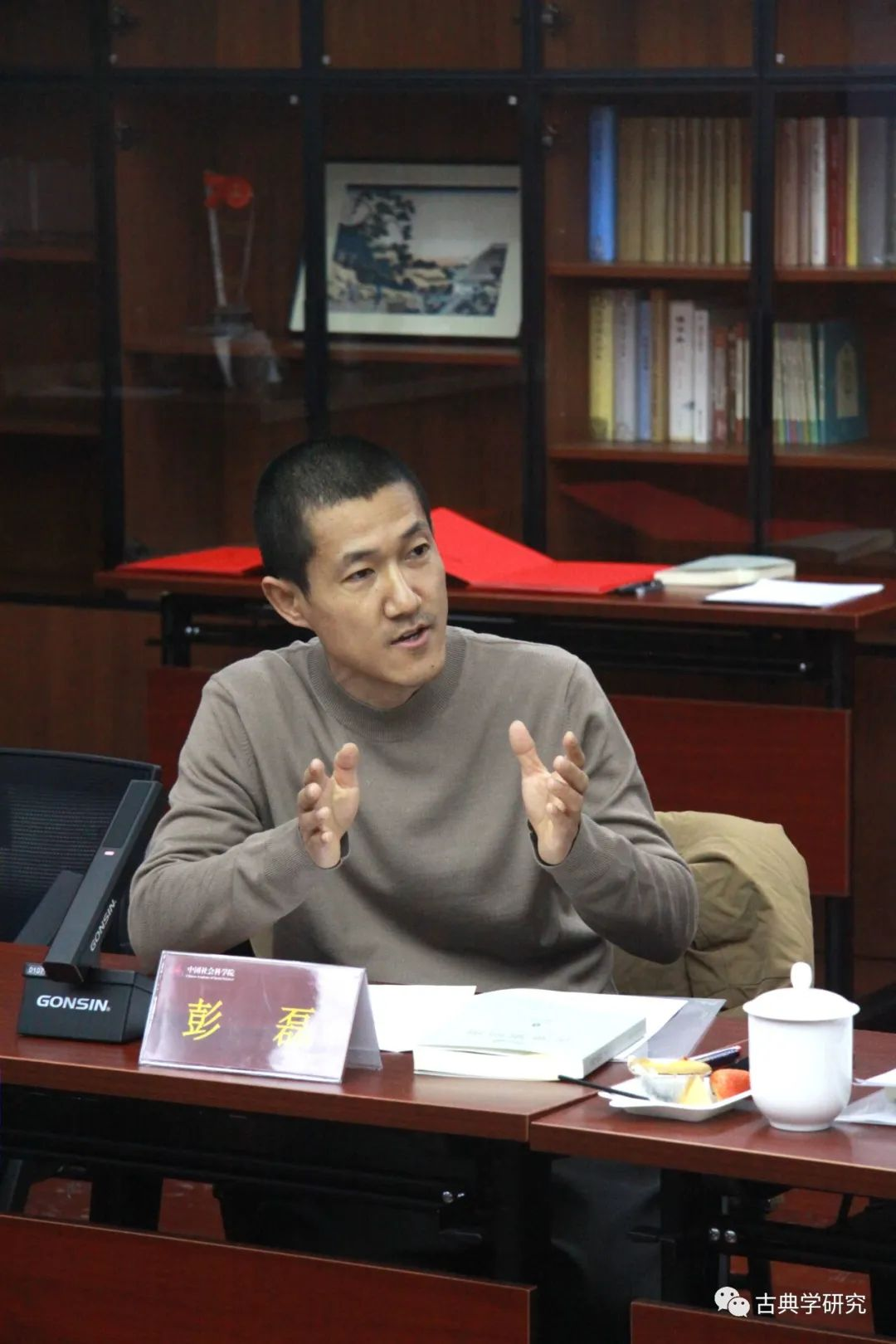
Peng Lei
Professor Peng Lei from the Center for Classical Civilization at the School of Liberal Arts, Renmin University of China, delved into the challenges classics face in finding a foothold in today's university systems. Confronted with the entrenched disciplinary structures of modern universities, there is a call to develop a classics discipline with distinct Chinese characteristics. In this regard, the academic framework and journal support provided by the Institute of Foreign Literature of CASS hold significant importance.
Address for the closing ceremony
The closing ceremony was presided over by researcher He Fangying, with researcher Cheng Wei delivering the concluding remarks. He highlighted the various challenges that classics may encounter in the future, yet affirmed that the Institute of Foreign Literature will continue to steadfastly support the development of this discipline. He expressed his hope for young scholars at the institute to dedicate themselves earnestly to their academic pursuits, and, in the context of mutual learning and exchange between Eastern and Western civilizations, produce scholarly works for the Chinese academic community that honor the spirit of the times and withstand the test of time.
The conference concluded successfully, yet the participants were acutely aware that the journey of classics is a long and arduous one, where tangible efforts are required at every step.
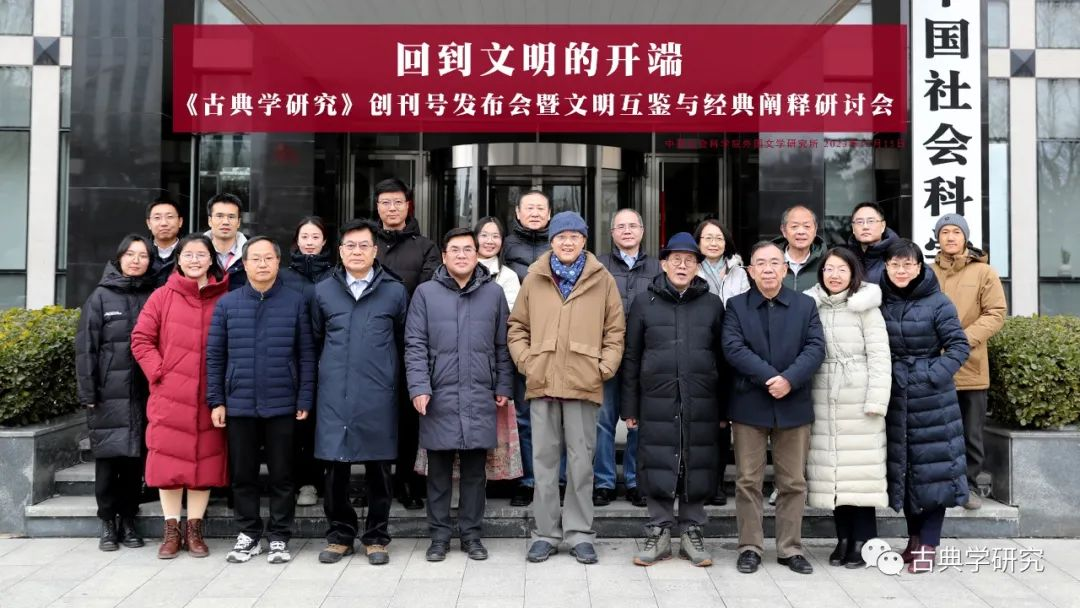
The group photograph from the meeting




